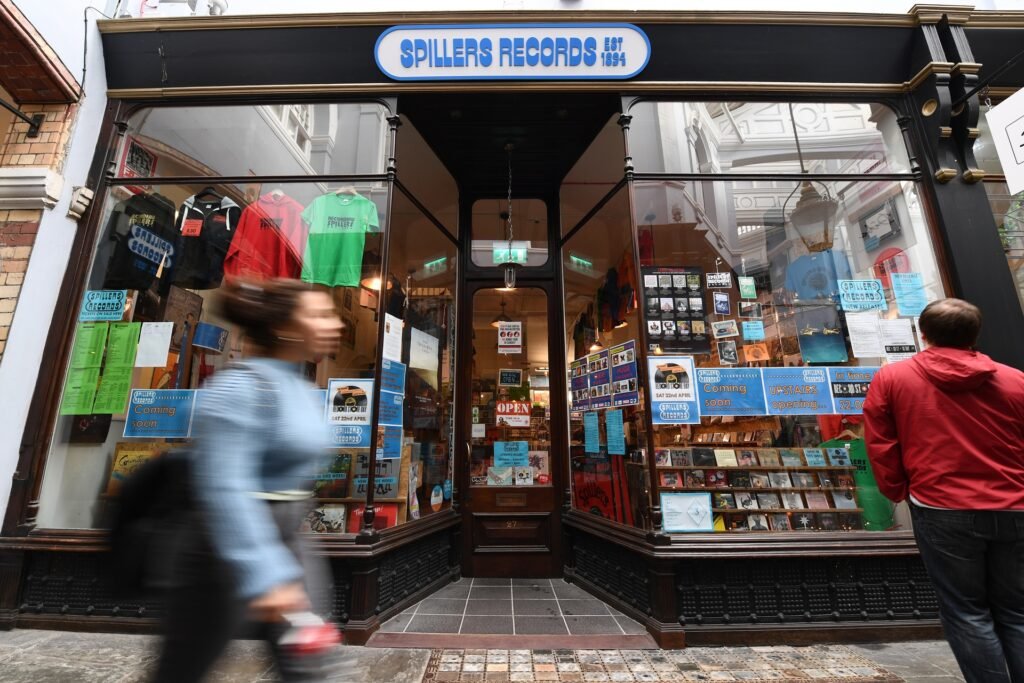
Nestled in the heart of Cardiff, Spillers Records isn’t just a shop—it’s a monument to music history. Established in 1894 by Henry Spiller, a keen enthusiast of the emerging music industry, the shop was originally set up in Queens Arcade as a place to sell phonographs, wax cylinders, and shellac discs—the very earliest forms of recorded sound.
At the time, vinyl wasn’t even a concept; music lovers were just beginning to experience recorded sound as a novelty. Henry’s vision was simple but ambitious: to bring the magic of recorded music to the people of Wales. As technology evolved, so did Spillers, adapting its stock to include 78s, then LPs, then cassettes, and later CDs and special vinyl editions. Key moments in its history include its move to The Hayes in the early 20th century, then to Morgan Arcade in 2010, where it continues to thrive. Through world wars, economic recessions, and digital revolutions, Spillers has kept the music alive, earning its title as the oldest record shop in the world.
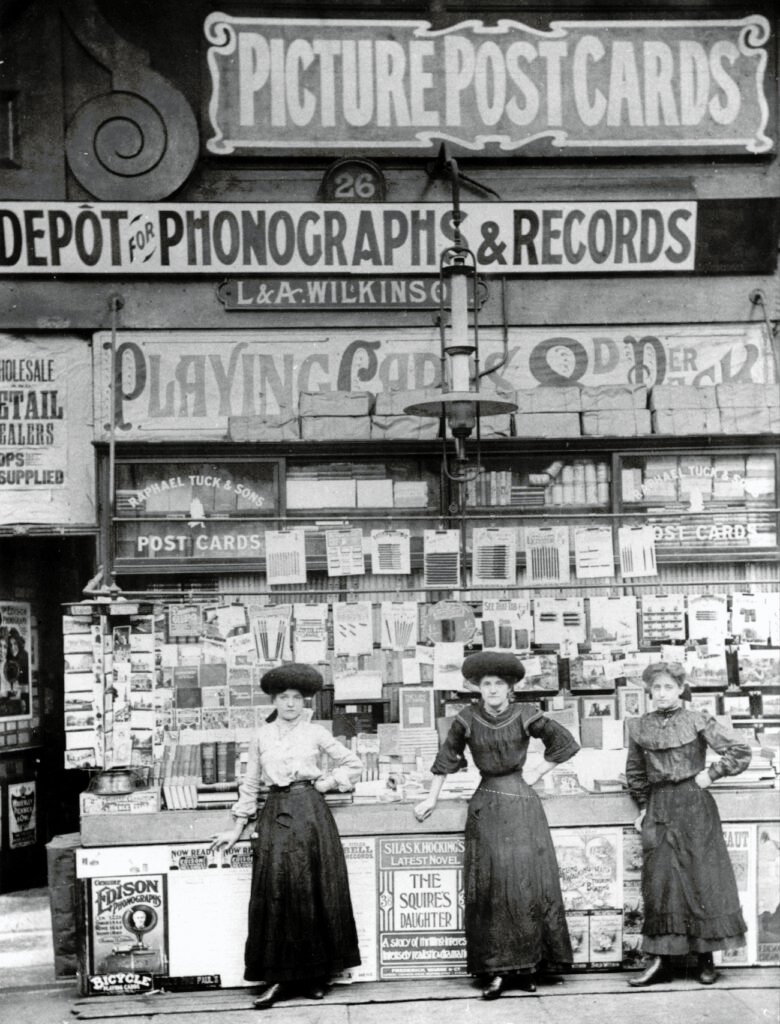
By the 1950s and 60s, Spillers had become more than just a shop—it was the epicenter of Cardiff’s music scene. As rock and roll took over the world, Spillers was at the forefront, supplying eager fans with records from Elvis Presley, The Beatles, and the explosion of British rock that followed. It wasn’t just about selling records; Spillers became a meeting point for musicians, collectors, and enthusiasts looking to discuss the latest releases or discover underground gems.
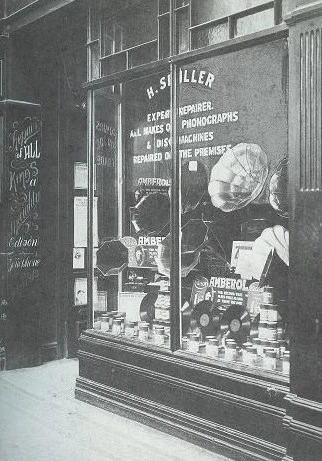
Stories of legendary visitors abound—Joe Strummer of The Clash, Manic Street Preachers, and countless local heroes all passed through its doors. The shop hosted legendary in-store gigs, creating a vibrant hub of live music within its walls. Customers recall moments of magic, where bands would perform just feet away from the vinyl bins. As one longtime visitor put it, “Walking into Spillers wasn’t just shopping—it was like stepping into a living, breathing piece of music history.”
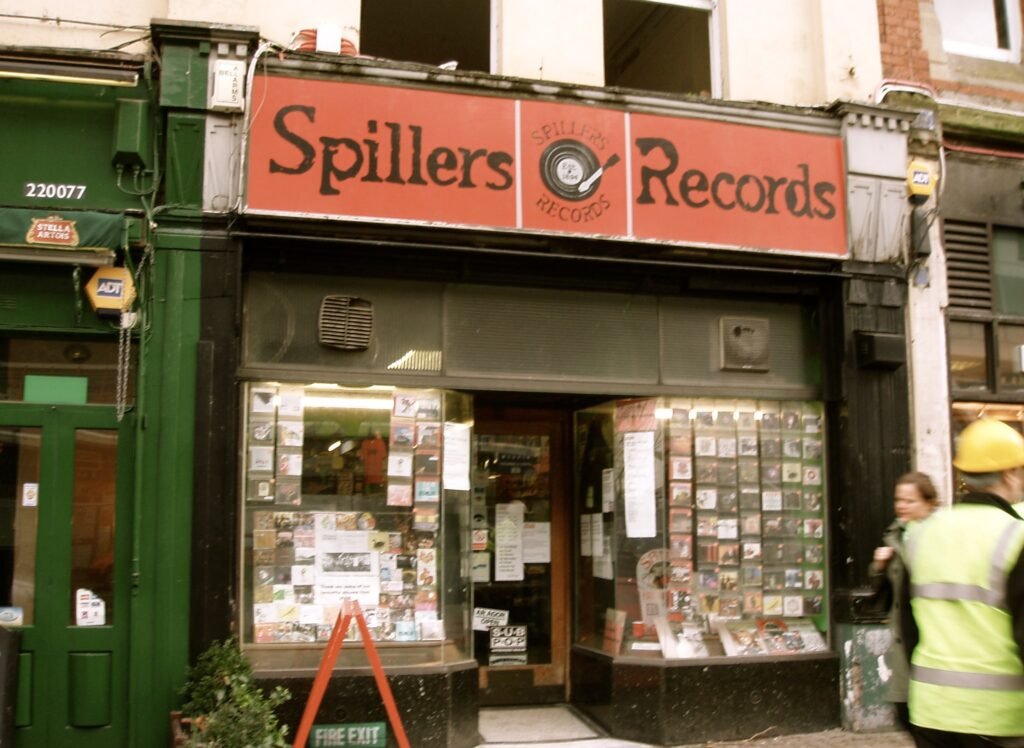
The 1990s and early 2000s were terrifying times for independent record shops, and Spillers was no exception. As CDs peaked and the rise of digital downloads and streaming loomed, many classic record stores were forced to close their doors forever. Spillers, however, fought back. Dedicated customers and music lovers rallied to keep it alive, spearheaded by figures like Ashli Todd, who took over the shop and fought tooth and nail to maintain its relevance.
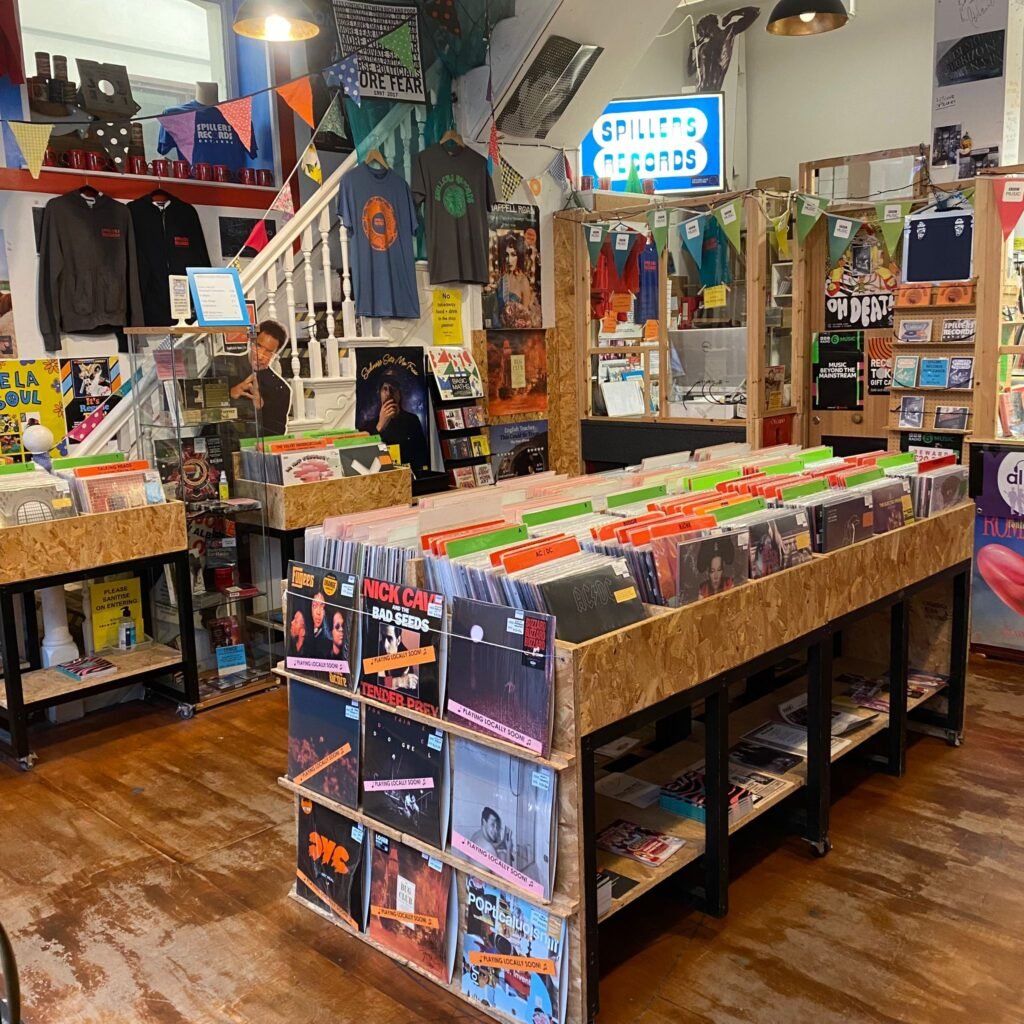
There were campaigns, fundraisers, and a wave of support from artists and the music community who understood Spillers’ importance. The shop navigated the crisis by doubling down on what it did best—specialist vinyl, rare pressings, in-store gigs, and a personal connection to customers that the internet simply couldn’t replicate. The vinyl revival of the 2010s gave it a second wind, and today, Spillers is more alive than ever. Artists like Jack White, Gruff Rhys, and Frank Turner have all performed there in recent years, keeping the spirit of the shop burning bright.
Spillers Records isn’t just a shop—it’s a cultural landmark that represents the soul of independent music retail. It stands as a testament to the enduring power of physical music, the importance of community-driven retail, and the value of music lovers supporting each other.
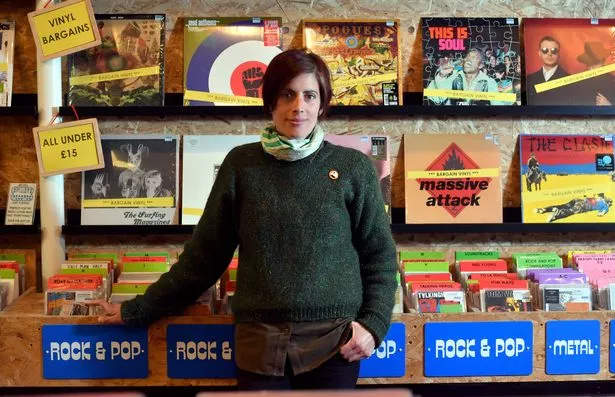
In an age where streaming services dictate trends through algorithms, Spillers remains a haven for discovery—a place where a record isn’t just a file, but an artifact, a story, a piece of history you can hold in your hands. Its influence spreads far beyond Cardiff, inspiring a new generation of record collectors and shop owners who look to its resilience as proof that passion can overcome industry shifts. Spillers has contributed not just to music history but to the survival of vinyl culture itself, proving that in a world that often moves too fast, there’s still magic in flipping through records, talking music, and finding that one pressing that changes everything.

